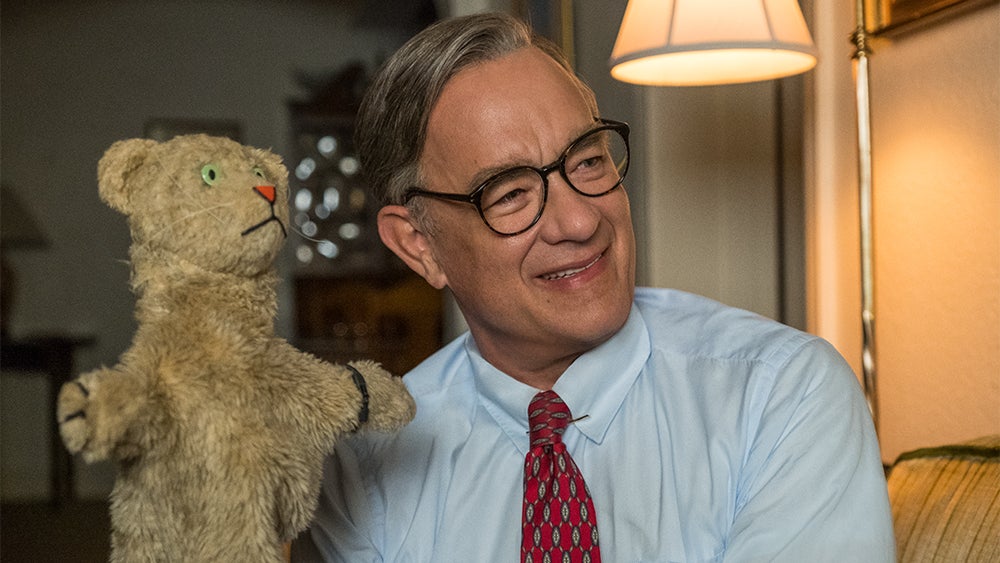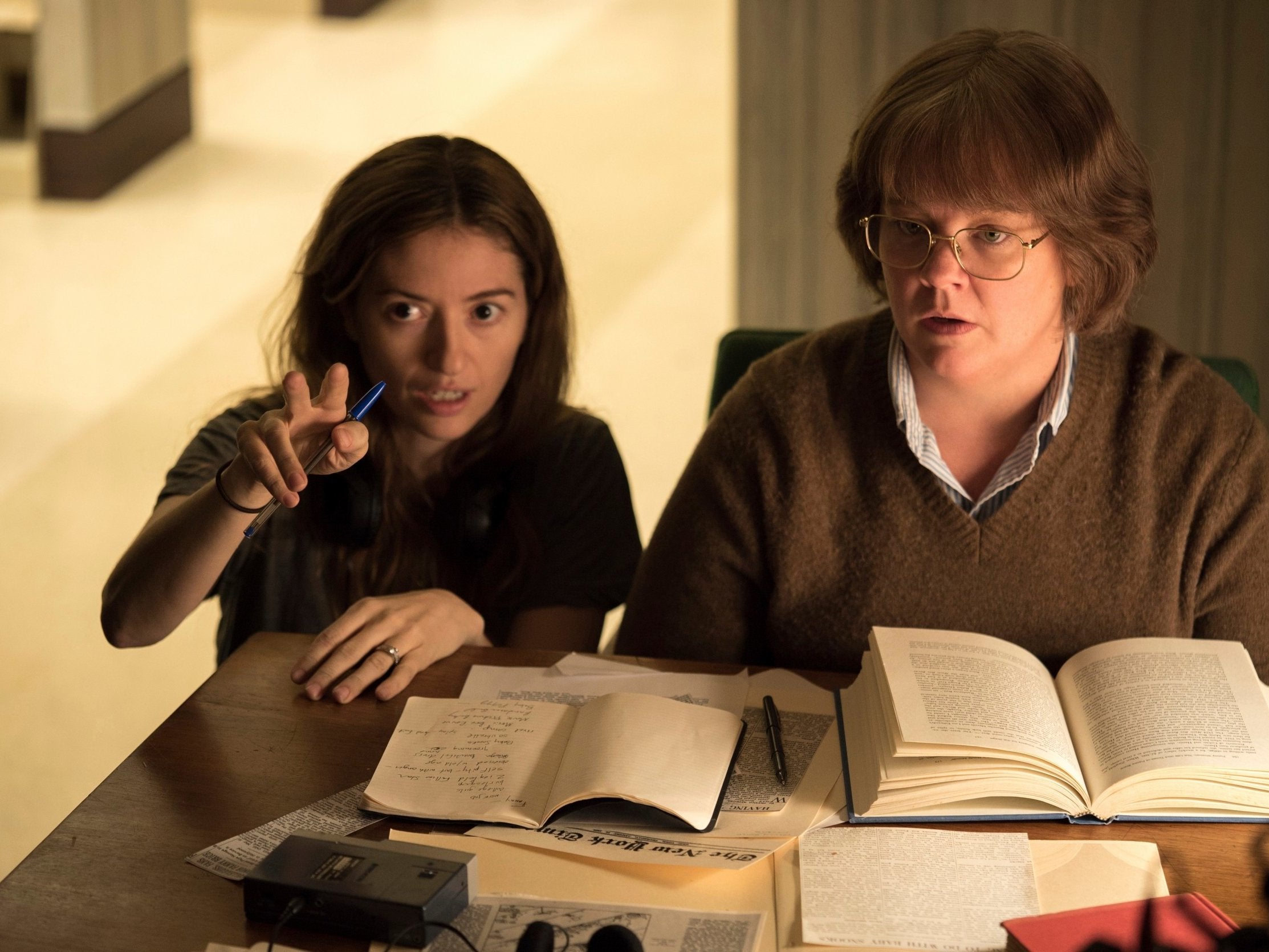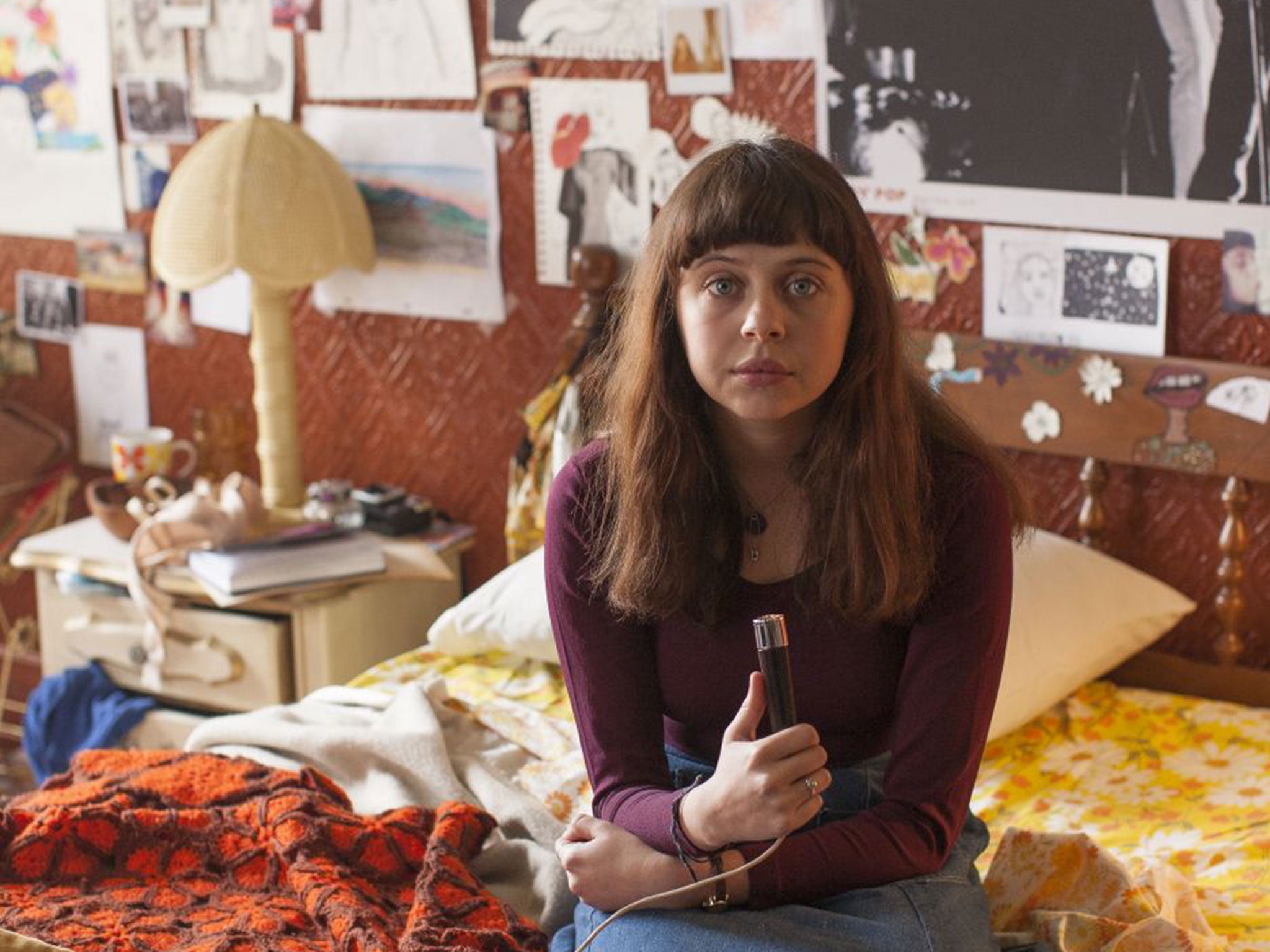Marielle Heller: ‘I think about gender as more of a spectrum’
The acclaimed director of ‘A Beautiful Day in the Neighborhood’ speaks to Adam White about Fred Rogers, identity politics, and why she refuses to suffer for her art


Fred Rogers was an American institution. A children’s television personality who sang, played with puppets and dressed in primary-coloured cardigans, he preached the importance of generosity, curiosity and compassion in 30-minute, sermon-like episodes broadcast daily between the years of 1968 to 2001. Rogers saw the wonderful potential of the world, and the importance of doing good. In the new film A Beautiful Day in the Neighborhood, which premieres at the London Film Festival this week, he has been brought back to life by Tom Hanks, an actor possessing a similarly indefinable yet inarguable goodness. As for the woman directing him? None other than the same filmmaker who just eight months ago, via the Oscar-nominated Can You Ever Forgive Me?, told the story of Lee Israel, the cynical literary forger who was sick of the world and resentful of her place in it. Marielle Heller, the filmmaker in question, says she can empathise with the world-views of both figures.
“I move within that scale,” she explains, her voice soft, precise, earnest – much like Rogers’s own. “And I think the most important thing is that I don’t judge anyone along either side of that scale. Part of what I loved about exploring Lee Israel was she was a woman who was often overlooked and judged. And it was fun to find all the ways that I could sympathise and feel as though I was like her. And similarly with this movie, there’s things about Fred Rogers that the more I learnt about him, the more I felt oddly connected to him.”
Some of the connections were thinner than others. For one, Rogers was a life-long vegetarian just as she has been. But for another, Heller found a kindred spirit in terms of her sensitivity to the world. Rogers turned his own deep emotional well into a public profile that made him a hero to generations of Americans, but Heller often felt the need to downplay hers in comparison. That changed, though, when she began to explore his life and work.
“There was something about working on this movie that made me see it as a gift,” she explains. “To a greater degree than me, Fred felt the suffering of other people and the world really deeply, and it led him to do the work that he did. Sometimes I joke that I think I’m too sensitive to be in Hollywood, or that I’m not cut out for this business, that I just don’t have the thick skin for it, but somewhere all those qualities in my life made me feel like I was the right person to make the movie about Fred Rogers, because I actually felt really connected to him and the way he experienced the world.”
Heller works – and excels – in an industry dominated by men. She has made only three films, released over the course of five years, with each one earning plaudits and awards attention. Her first, 2015’s The Diary of a Teenage Girl, starred Bel Powley as a San Francisco teen navigating her sexual identity. Heller, a former actor, had first adapted the story for the stage, having fallen in love with Phoebe Gloeckner’s original graphic novel. She then plotted turning it into a film, leading her to apply for training at the Sundance Labs, an intensive filmmaking course connected to the festival of the same name, and later directing the adaptation herself after struggling to accept the idea of anyone else doing it instead. Can You Ever Forgive Me? followed three years later, with its stars Melissa McCarthy and Richard E Grant both receiving Oscar nominations for their performances.
A Beautiful Day in the Neighborhood completes her trilogy of melancholy masterpieces. It is a soothing, bittersweet drama, with Hanks mesmerising as Rogers. What it isn’t, however, is a traditional Hollywood biopic – the kind resembling a glorified Wikipedia page, or designed to further fill up the awards cabinet of a Ron Howard type. Heller, who was approached to direct the film from a script by Micah Fitzerman-Blue and Noah Harpster, confesses that she only realised people were expecting her film to be a biopic when she began doing press for it.
“The reason the movie was appealing was because of how the script so smartly didn’t fall into any of those traps,” she explains. “I just have no interest in making a biopic. No offence to biopics, it’s just not where my mind goes. I have a hard time with films that I feel like I can predict every twist or turn they take from the moment I start reading the script.”

As a result, Hanks’s Rogers is almost a supporting character in the film: a serene mirage of positivity who is being unhappily trailed by a reporter for Esquire (played with prickly, slowly diminishing disdain by Matthew Rhys) commissioned to write a profile on him. The journalist, loosely based on journalist Tom Junod, is deeply cynical of Rogers’s apparent goodness – until he undergoes a radical transformation while in his company.
When it comes to her own interviews, Heller is open about the fact that it’s a mode that doesn’t come naturally to her. You almost imagine, if she didn’t have a movie to promote, she’d be quick to mimic Rogers’s real-life interactions with journalists. The star was famous for surreptitiously asking questions about their lives, and with such casual finesse that the journalists speaking with him often didn’t realise until it was too late that they’d been talking about themselves for much of the interview.
“I think anyone would be lying, except maybe Oprah or something, if they said that they felt always confident and that they were where they were meant to be,” she says. “I go back and forth. There are so many aspects to this business, one of them is making the work, and then another part of it is putting it out into the world. They’re very different skills. They require different things of you, and I feel very comfortable in the making of the work. That’s my happy place. The parts of the business that I think get hard for me are being part of this larger conversation where you’re having, I don’t know, press conferences.”
A lot of this, Heller suggests, came to a head in the 2019 awards season. Can You Ever Forgive Me? received three nominations at the Oscars, two for acting and one for the film’s screenplay by Nicole Holofcener and Jeff Whitty, but there were grumbles among film journalists that the movie deserved far more attention – in particular for Heller’s work as director.
That it was largely overlooked particularly stung due to the films that ultimately cleaned up. While Can You Ever Forgive Me? was quietly revolutionary as a piece of studio-backed cinema, being exclusively led by two queer characters whose sexualities were not remotely the focus of the film, the season was otherwise dominated by the likes of Green Book and Bohemian Rhapsody – both of which attracted their fair share of criticism. But Heller seems relieved about the film’s relative lack of awards success when I ask her about it now, suggesting that she found much of her awards season experience uncomfortable anyway.

“It’s funny because Lee Israel had such a philosophy of, like: ‘Just do the work, don’t sell it’,” she explains. “Like who cares about whether you’re good at selling it? It’s all about if you do good work. I don’t begrudge it. I don’t think I’m one of those people who goes around saying, ‘I hate this’ or ‘I hate speaking about it’, because I don’t and I love doing Q&As and I love speaking to audiences, but there is a sense when it comes to the awards campaign at times that you’re supposed to tout your talents and boast about your vision and things like that, and it feels wrong. It just doesn’t feel in the spirit of the collaborations that we [have] when we make these things.”
It probably didn’t help matters that she was being endlessly asked about the experience of being a woman director in Hollywood. The gloomy picture of non-male visibility behind the camera is slowly improving, both in industry terms and in the institutions that make or break films, with women directors responsible for 40 per cent of the movies playing at the London Film Festival this year, along with 60 per cent of films in competition. But being one of the most high-profile women currently working behind the camera with regularity has also made Heller very aware of the expectations placed on her to be a mouthpiece for all female directors. She says that not an interview goes by where she is not inevitably asked questions about her experiences.
“Which I don’t mind,” she says, with slight apprehension. “I like talking about representation and our sort of identity politics. But my ideas about gender have also expanded over the last couple of years as well. I tend to think about gender as more of a spectrum now and less of a binary, and I try to not get caught up in male versus female in any way. But until the numbers are better in Hollywood, until it’s more than 4 per cent directing movies [being women], I think I’ll still get those questions no matter what.”

With those annoying questions, however, also come new degrees of power. On the set of A Beautiful Day in the Neighborhood, Heller finally began flexing it, confident enough in her industry clout to set clear boundaries about how she wants her productions to run. She instigated “French hours”, an industry term for shooting for 10 straight hours rather than 12 or 13, broken up by a long lunch. It meant that she and many of her colleagues were able to put their children to sleep once the day was over. Heller has a four-year-old son with her husband, the Lonely Island comedian, Jorma Taccone.
“For me, as a mom and as a woman, that became really important,” she explains, “that I found a way to do this work and not abandon my kid at the same time. I fought for things like that. I don’t believe that we should give up being people in order to make art, and I don’t believe we ought to give up our relationships or being good parents in order to make good movies. And I don’t believe in this idea that we have to suffer for art.”
It’s a lovely note to end an interview on, seemingly reflective of a filmmaker finally coming into her own. Heller is quick to insist, however, that she remains a work in progress, even with three brilliant films under her belt.
“Every day is a challenge to try and trust your instincts and allow yourself to make mistakes and be bold with your creativity,” she says. “And I’ll still be fighting that battle with my own brain every day for the rest of my life, I’m sure.”
A Beautiful Day in the Neighborhood screens at the London Film Festival this weekend, and will be released nationwide on 6 December
Join our commenting forum
Join thought-provoking conversations, follow other Independent readers and see their replies
Comments
Bookmark popover
Removed from bookmarks